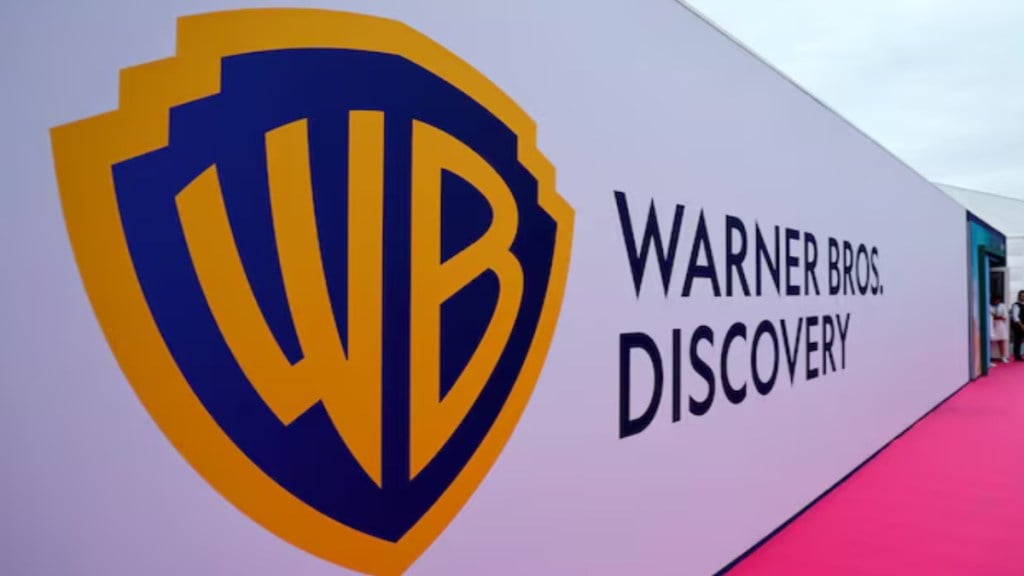Barely five weeks after sealing an $8 billion takeover of Paramount Global, David Ellison’s Skydance Media is reportedly weighing a much larger prize – Warner Bros. Discovery (WBD). The prospective $70 billion-plus deal comes even as Paramount Skydance has yet to finish cutting more than 2,000 jobs to rein in costs. The timing raises a key question is why pursue another acquisition before the dust has settled on the Paramount merger?
Why strike a deal now?
On paper, it might seem logical for Ellison to wait until April 2026, when WBD is expected to split into two entities – Warner Bros. (HBO Max and studios) and Discovery Global (TV networks). Such a division would isolate the growth engine, HBO Max and the studio portfolio, from the declining linear television side, making Warner Bros. a more attractive target.
Yet, experts say moving early could be part of a larger Ellison strategy to consolidate media assets in a volatile industry. Robert Fishman of MoffettNathanson argues that acquiring WBD as a whole now would prevent rivals like Netflix, Amazon or Apple from cherry-picking Warner Bros. post-split. Pre-emption, he says, may prove more valuable than waiting.
A Warner Bros. takeover would bring marquee assets such as Warner Bros. Motion Picture Group, HBO, DC Studios and CNN under Ellison’s control, propelling him into the top tier of Hollywood power brokers.
Competition for Warner Bros.
Wells Fargo’s Steven Cahall recently described the future standalone Warner Bros. as “the only large IP asset for sale at a time when most streamers harbour expansion ambitions.” Netflix, though traditionally wary of acquisitions, was identified as the most compelling buyer, with Amazon, Apple, Comcast and Sony also possible contenders.
For Paramount Skydance, fusing HBO Max with Paramount+ could create a formidable streaming service. Beyond streaming, combining CBS with CNN and integrating Turner’s sports rights with Paramount’s existing portfolio could unlock cost synergies and fresh opportunities.
The scale of a WBD purchase dwarfs the Paramount deal. WBD’s enterprise value is now about $71 billion, compared to the $8 billion Skydance paid for Paramount Global. The sheer debt burden of WBD poses a challenge, with analysts cautioning that high leverage could deter an attractive bid.
Moreover, regulatory hurdles loom larger than in the Skydance-Paramount tie-up. The latter was viewed as a vertical integration, a studio buying a distributor, whereas a Paramount-WBD combination would merge two of the world’s biggest media players. Senator Elizabeth Warren has already signalled strong opposition, calling the proposal “a dangerous concentration of power” that should be blocked.
Political shadows
The regulatory landscape is further complicated by politics. The Trump administration approved the Skydance-Paramount merger after Skydance made concessions, including scrapping diversity initiatives and funding an ombudsman at CBS News. Critics such as Warren have alleged that Paramount’s $16 million settlement with Trump over a lawsuit concerning CBS was effectively a bribe to smooth approval.
These allegations, combined with Trump’s claim that Paramount pledged millions in free advertising, have intensified scrutiny of Ellison’s ambitions. Whether such a politically charged deal could win regulatory clearance is uncertain.
Despite the obstacles, Warner Bros. Discovery’s chief executive David Zaslav may find his vision of media consolidation coming true. He has long argued that a fragmented sector must streamline to compete with global tech giants. With Trump’s second term in office, Zaslav believes regulatory approval for mergers may be more forthcoming.
For Ellison, the gamble is clear – seize Warner Bros. Discovery now to cement Paramount Skydance as a dominant force in streaming and content, or risk losing the crown jewel of Hollywood to a deep-pocketed rival.

